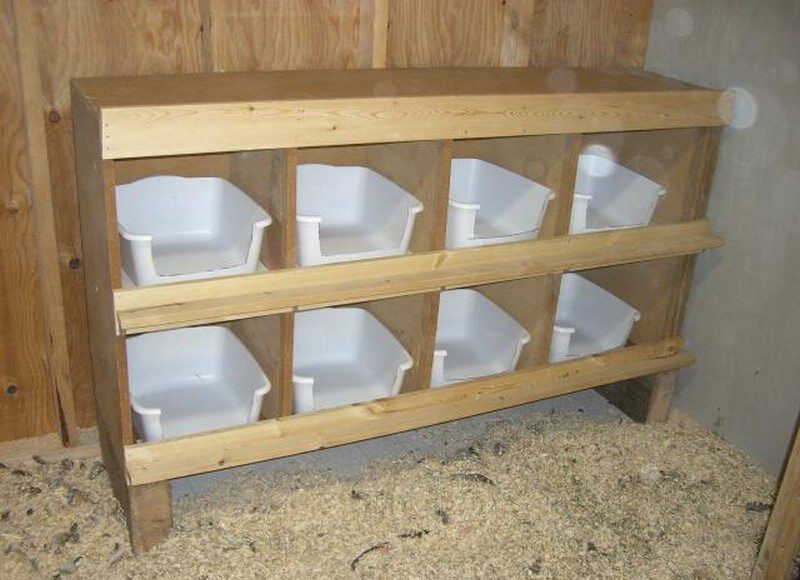Ensuring that your chickens’ eggs remain clean in their nesting boxes is crucial not only for the hygiene of the eggs but for the overall health of your flock. A clean nesting environment helps prevent the spread of bacteria and keeps the eggs in pristine condition. In this article, we will explore various methods and practices to maintain cleanliness in the nesting boxes.

The Importance of Clean Eggs
Clean eggs are essential for several reasons. First and foremost, they are safer to consume. Dirty eggs can harbor bacteria such as Salmonella, which can lead to foodborne illnesses. Additionally, clean eggs are more appealing to buyers if you plan to sell them. Moreover, maintaining cleanliness in nesting boxes contributes to a healthier environment for your hens, reducing their stress and promoting egg production.
Choosing the Right Nesting Box
Selecting the appropriate nesting box is the first step towards keeping eggs clean. The box should be large enough for your hens to feel comfortable and enclosed enough to provide privacy. Consider using materials that are easy to clean and disinfect.
Material Matters
When it comes to the material of the nesting box, options like plastic or metal are ideal as they are easy to wipe down and sanitize. Wooden boxes can also be used, but they may require more maintenance to prevent bacteria buildup.
Using Proper Bedding
Choosing the right bedding is vital in maintaining clean eggs. Bedding materials such as straw, pine shavings, or organic bedding are excellent options. These materials help absorb moisture and provide a comfortable cushion for the eggs.
Bedding Maintenance
Regularly change the bedding to prevent the accumulation of dirt and bacteria. It is recommended to replace the bedding at least once a week or more frequently if it becomes soiled.
Regular Cleaning Routine
Establishing a cleaning routine for your nesting boxes is essential. Remove any broken eggs or droppings daily to maintain a clean environment. Periodically, remove all bedding and wash the nesting boxes with a mild disinfectant.
Disinfecting the Nesting Boxes
Use a mixture of vinegar and water or a poultry-safe disinfectant to clean the boxes. Ensure that the boxes are completely dry before adding fresh bedding.
Encouraging Hens to Use Nesting Boxes
Sometimes, hens may choose to lay eggs outside the nesting boxes. To encourage them to use the boxes, ensure they are placed in a quiet, dimly lit area of the coop. Providing a comfortable and inviting environment will entice the hens to lay their eggs in the designated area.
Placement of Nesting Boxes
Place the nesting boxes at a height that is easy for the chickens to access. Avoid placing them on the ground where they can easily become soiled.
Preventing Broodiness
Broody hens may refuse to leave the nesting box, leading to dirty eggs. To prevent broodiness, remove eggs frequently and ensure the hens have sufficient space and stimulation elsewhere in the coop.
Daily Egg Collection
One of the simplest ways to keep eggs clean is to collect them daily. Regularly collecting eggs prevents hens from stepping on or soiling them, keeping them fresh and clean. Learn more tips on daily egg collection.
Using Artificial Eggs
Placing artificial eggs in the nesting boxes can encourage hens to lay in the right spot. This can also help deter egg-eating behavior among chickens.
Monitoring Chicken Behavior
Keep an eye on your chickens’ behavior to identify any issues. If you notice excessive pecking or aggressive behavior, it may be necessary to address these issues to maintain a peaceful nesting environment.
Winter Care for Nesting Boxes
During colder months, ensure that the nesting boxes are warm and dry. Adding extra bedding and insulating the boxes can help keep the eggs and hens comfortable.
Summer Care for Nesting Boxes
In the summer, ventilation is crucial. Ensure that the nesting boxes are well-ventilated to prevent overheating and moisture buildup.
Conclusion
Maintaining clean nesting boxes is an essential part of poultry care. By following these practices, you can ensure that your eggs remain clean and your chickens stay healthy. For more ideas on nesting box ideas, explore online resources and communities.

FAQs
Why is it important to keep eggs clean?
Clean eggs reduce the risk of bacteria contamination and are safer to consume.
What materials are best for nesting boxes?
Plastic or metal are ideal as they are easy to clean. Organic bedding materials also help maintain cleanliness.
How often should I clean the nesting boxes?
Clean the boxes daily by removing dirt and broken eggs. Replace bedding weekly for optimal hygiene.
This article contains affiliate links. We may earn a commission at no extra cost to you.











